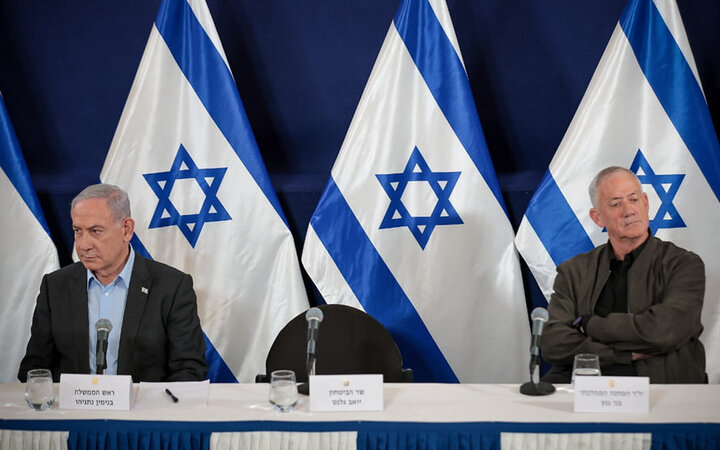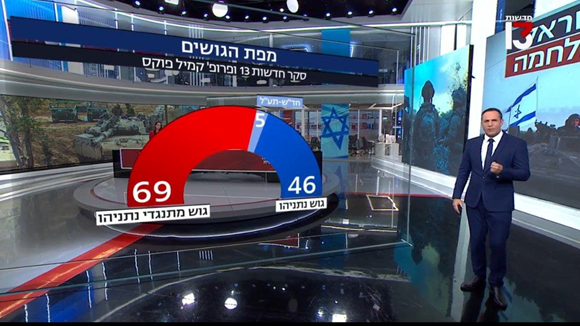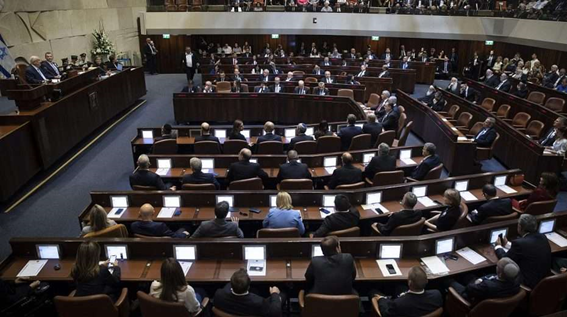Intensification of differences in the ranks of the Zionists after the “Aqsa storm”

| After the Al-Aqsa Storm operation, the differences between the Zionist authorities, especially between Benjamin Netanyahu and Benny Gantz, have intensified. |
Mehr News, International Group: Since the formation of the Zionist regime until today, there have been fewer incidents like the operation Al-Aqsa storm has managed to create a big earthquake in the political, military, security and economic structures of the Zionists. By comparing the October 7 attack with major events such as the “Independence” war or the “Yom Kippur” war, some experts on occupied Palestine are trying to point out the scope of this event and indirectly talk about its possible effects on Israel’s political sphere. During the Yom Kippur/Ramadan war in 1973, although the Israeli army was able to make up for the initial defeats and win over the neighboring countries, after the end of the war, Golda Meir’s reputation and the leftist political movement in Israel were severely damaged due to being surprised in this war. It was damaged and it strengthened the position of the rightists in the occupied territories.
From judicial reforms to Al-Aqsa storm
Nearly a year ago, when Benjamin Netanyahu and his right-wing allies managed to seize power in the occupied territories by winning 64 seats; Few people imagined that this political coalition would face many complex and unpredictable challenges. After Justice Minister Yario Levin and Knesset Constitutional Committee Chairman Simcha Rotman presented judicial reform bills, the opposition forces led by Benny Gantz and Yair Lapid occupied the streets of occupied Palestine under the pretext of defending the so-called democratic institutions in Israel. According to The Times of Israel, during nationwide protests and strikes in the Zionist regime, sometimes more than 100,000 people protested against the proposed plan in the streets of major cities such as Tel Aviv. In addition, people working in government, private, military and even intelligence posts tried to express their opposition to the actions of the established cabinet by going on strike or resigning.
After the surprise operation of Al-Aqsa Storm, although the government announced that it would abandon the approval of judicial reform bills and a kind of “ceasefire” was established between the government and the members of the opposition. ; But public dissatisfaction with Netanyahu increased. The results obtained in opinion polls and polls indicate a preference for right-wing individuals and parties, but the level of public trust towards the Prime Minister has decreased drastically.
According to the publication of the results of a survey conducted on the Zionist regime’s Channel 13 on January 22, 2024, the level of public opinion’s trust in the Likud party and Netanyahu’s person continues to decline. In this survey, the National camp led by Benny Gantz won 37 seats, the Likud led by Benjamin Netanyahu won 16 seats, Yeshatid led by Yair Lapid won 14 seats, Israel Beitna led by Avigdor Lieberman won 9 seats, Shas led by Aryeh Derai won 9 seats. Utsamah Yehudi led by Itamar Ben Gower with 8 seats, United Torah Judaism led by Yitzchak Goldknov with 7 seats, Religious Zionism led by Betsalel Asmutarich with 6 seats and finally the Arab Party of Ram led by Mansour Abbas with 5 seats were ranked next. . According to the results published in this survey, if elections are held today in the occupied territories, the opposition forces led by Benny Gantz will be able to win 69 seats. It seems that after the Al-Aqsa storm operation, the Israeli society has become more interested in moderate parties and seeks to overcome right-religious radicalism in the post of prime minister.
Change of power in Tel Aviv and the future of the normalization project
One of the influential variables in the survival or downfall of the current Israeli cabinet is the future of normalizing relations with Saudi Arabia. Currently, due to the increase of anti-Israel sentiments in the Islamic world, Riyadh cannot easily continue the project of normalizing relations with Tel Aviv and provide the ground for the integration of this regime in the security-economic region of the Arab Middle East. In order to achieve a significant achievement on the eve of the 2024 elections, the Biden administration has increased political pressure on Tel Aviv by simultaneously negotiating “ceasefire in Gaza”, “normalizing Tel Aviv-Riyadh relations” and “establishing an independent Palestinian state”. Based on this, the foreign policy apparatus of the Saudi government announced that one of the main conditions of this country for the normalization of relations with Tel Aviv is the announcement of the formation of an independent Palestinian state based on the Arab peace plan. In response to increasing pressure for the formation of a Palestinian state, the Israeli Knesset, with a decisive vote of 99, announced its opposition to the unilateral recognition of the formation of the Palestinian state.
Despite Netanyahu’s personal desire to reach a peace point with Riyadh, but it seems that the pressure of right-wing members of the cabinet such as Ben Guer and Asmutaric is the process of normalizing relations between Israel And it has made Saudi Arabia difficult and complicated. For example, the Minister of National Security of Israel has threatened that if Netanyahu agrees to Washington-Riyadh conditions regarding the formation of the Palestinian government, then he will leave the cabinet and the government will fall. Based on this, one of the serious possibilities regarding Hebrew-Arab peace is Netanyahu’s alliance with the opposition in order to prevent the fall of the cabinet and the complication of political conditions in the occupied territories.
Bahre Sakhan
According to the bimonthly report of Foreign Affairs, Netanyahu’s cabinet used the equivalent of three atomic bombs in this unequal war in the first 100 days of the war in Gaza, which destroyed 70% of houses and 85% of the residents of this area have been displaced. Some analysts believe that the current Prime Minister of Israel plans to try his luck to survive in power by achieving goals such as destroying Hamas or changing the geopolitical situation of Gaza, as well as expanding the scope of the crisis outside the occupied territories. However, the most serious scenario regarding Israel’s political future after the Al-Aqsa storm is that Netanyahu’s cabinet will most likely fall and the fact-finding committee will begin the process of investigating and prosecuting the individuals or institutions responsible for the October 7 attack. If this scenario is realized, it is likely that center-right figures such as Benny Gantz, Naftali Bennett and even Yossi Cohen will have a great chance to become prime minister.
[is_logged_in] Link [/is_logged_in]
|




